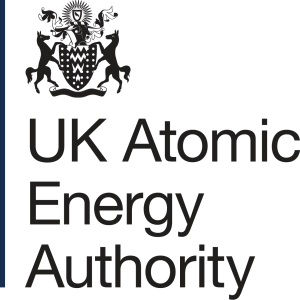When it came to choosing a career, despite enjoying my degree, I knew that a career in academia was not right for me. I wanted to maintain at least some contact with the scientific field, but knew that entering research and/or a PhD course would most likely mean working within a specialised area of technology. So, when I found out about the patent profession in my final year, it was the potential to work across different areas of science that appealed to me most.
Keen to find out more, I got in touch with a handful of trainees and qualified attorneys in the profession. Some of these were friends (or friends of friends), and others I was put in touch with by the university careers service. It was incredibly useful to talk to people face to face, or over the phone, to find out more about what the job was actually like.
It was at this point that I realised how interested I was in the legal side of the patent world, so I also took the opportunity to meet with a solicitor and a barrister, who each worked within patents. I found out that, as a patent attorney, you work closer to the inventors, and so much closer to the technology, than you would do as a solicitor or a barrister. This was why I settled on applying for trainee patent attorney positions, rather than exploring other routes within the legal profession. There is also the added bonus that you start work straight away, rather than having to do a law conversion, meaning that you get experience in the sector from the word go.
Application process
After graduation, I applied to a number of different firms. A lot of patent attorney firms are quite small, so they tend to recruit new trainees as and when a position becomes available. This means that each firm will most likely only have a small number of vacancies, so I would recommend applying to as many firms as possible, even if these applications are speculative.
The job requires attention to detail and good written communication skills, so be meticulous when proofreading anything you submit. Being verbally articulate is also important for the job, as eventually in your career you may need to argue a case in person at the European Patent Office. So, when it comes to the interview stage, it’s a good idea to practice things like describing everyday objects, explaining your research project/PhD succinctly (I practised doing this in layman’s terms, as well as in detail) – but also, be prepared to be put on the spot! Being able to show that you have a genuine interest in the profession is also important, so it’s worth mentioning if you’ve been to any presentations, open days, or spoken with people in the profession.
Training and qualification
After attending several interviews, I received an offer from a private practice firm in London, and I joined their Chemical and Pharmaceutical team in January 2013. The majority of training happens on-the-job through exposure to different work types, but most firms also supplement this with in-house tutorials and external courses. I completed the Queen Mary Certificate in Intellectual Property Law, which provides exemption from the UK foundation examinations. I passed this course at the beginning of 2014. Although the course is quite intensive, it was interesting to learn about the wider areas of law outside of patents, and I enjoyed meeting trainees from other firms.
The firm I initially joined provided me with an excellent grounding in the profession. However, after two years, I realised that the work-type didn’t fit with my long-term interests. So, mid-way through my training, I started to apply for jobs at other firms.
I joined GJE in December 2014. The work at the firm is incredibly varied, both legally and technically. I have worked on fuel cells, polymers, drug formulations, detergents, and have had exposure to lots of different legal aspects of patent law. Learning about client management can also be a steep learning curve. For example, the legal ability of clients can vary considerably, so you have to tailor how you write emails, speak over the phone, or hold meetings, from client to client. However, although there is a lot to learn, my colleagues provide a lot of support, and there is always someone to ask for help or advice. It’s also a very sociable firm, and there are always social events in the pipeline, and regular post-work drinks.
I sat my EQE final examinations in March 2016, and I am waiting for the results. To help prepare for my EQEs, I received in-house tutorials, and attended a week-long training course. I would say that the exams are the main downside of the job – balancing revision with a full-time job can be stressful at times! But in spite of this, I would still recommend the patent profession, as the job provides interesting, challenging and rewarding work.
* Update – August 2017: Rebecca is now a qualified attorney at Gill Jennings & Every LLP






